November 4, 2016 •
Contribution Limit Legislation On the Horizon for New York City, NY
The New York City Council plans to hear legislation aimed at limiting contributions from contributors who have city business to groups directed or affiliated with an elected official. The bill, yet to be released publicly, will likely limit contributions to […]
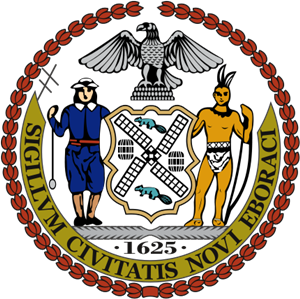 The New York City Council plans to hear legislation aimed at limiting contributions from contributors who have city business to groups directed or affiliated with an elected official.
The New York City Council plans to hear legislation aimed at limiting contributions from contributors who have city business to groups directed or affiliated with an elected official.
The bill, yet to be released publicly, will likely limit contributions to hundreds of dollars and require city or public officials to report contributors annually.
The bill will likely be introduced to City Council within two weeks.
October 7, 2016 •
Ontario Bill Banning Corporate Contributions Moves Forward
On October 4, Ontario’s campaign finance bill banning corporate contributions was referred to a standing committee. Bill 2, Election Finances Statute Law Amendment Act, 2016, was introduced in the Legislative Assembly of Ontario in September to amend the current campaign […]
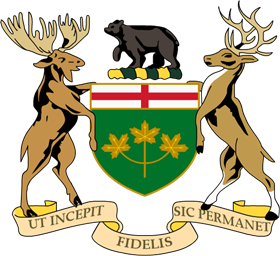 On October 4, Ontario’s campaign finance bill banning corporate contributions was referred to a standing committee. Bill 2, Election Finances Statute Law Amendment Act, 2016, was introduced in the Legislative Assembly of Ontario in September to amend the current campaign finance laws.
On October 4, Ontario’s campaign finance bill banning corporate contributions was referred to a standing committee. Bill 2, Election Finances Statute Law Amendment Act, 2016, was introduced in the Legislative Assembly of Ontario in September to amend the current campaign finance laws.
The bill prohibits corporations, unions, and unincorporated groups not affiliated with political parties from making political contributions to parties, candidates, constituency associations, and nomination and leadership contestants.
Individuals, who may now make political contributions in the amount of up to $33,250, would be limited to maximum contributions of $3,600. Specifically, an individual could give $1,200 to a party each year, $1,200 to the candidates of a party in an election period, and $1,200 to the constituency associations and nomination contestants of a party each year. Additionally, individuals would be limited to giving a maximum of $1,200 to each leadership contestant of a party per calendar year. Among the other changes in the bill are disclosure requirements for political parties concerning fundraisers.
If passed, the law would come into force on January 1, 2017.
On November 17, the Fair Political Practices Commission (FPPC) will consider proposed regulations to make biennial cost of living adjustments to campaign contribution and gift limits that will apply from January 1, 2017 through December 31, 2018. The proposed regulations […]
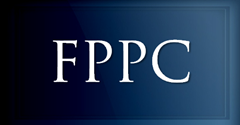 On November 17, the Fair Political Practices Commission (FPPC) will consider proposed regulations to make biennial cost of living adjustments to campaign contribution and gift limits that will apply from January 1, 2017 through December 31, 2018.
On November 17, the Fair Political Practices Commission (FPPC) will consider proposed regulations to make biennial cost of living adjustments to campaign contribution and gift limits that will apply from January 1, 2017 through December 31, 2018.
The proposed regulations would change the gift limit from $460 to $470 and make increases to campaign contribution limits.
The FPPC is accepting written comments on the proposals until November 15, 2016.
September 27, 2016 •
Contribution Limits Lifted in Illinois Comptroller Race
Contribution limits have been lifted in the Illinois comptroller race between incumbent Leslie Munger and Democratic challenger Susana Mendoza after Munger’s husband loaned $260,000 to her campaign. State law stipulates any contribution exceeding $250,000 to a candidate’s own race abolishes […]
 Contribution limits have been lifted in the Illinois comptroller race between incumbent Leslie Munger and Democratic challenger Susana Mendoza after Munger’s husband loaned $260,000 to her campaign.
Contribution limits have been lifted in the Illinois comptroller race between incumbent Leslie Munger and Democratic challenger Susana Mendoza after Munger’s husband loaned $260,000 to her campaign.
State law stipulates any contribution exceeding $250,000 to a candidate’s own race abolishes the limits for all candidates in the race.
Gov. Bruce Rauner appointed Munger last year following Judy Baar Topinka’s death. The winner of the November election will finish the remainder of the four-year term.
September 21, 2016 •
St. Louis, MO Campaign Finance Bill Approved in Committee
St. Louis aldermen advanced Board Bill 53 out of committee on Tuesday, September 20. The bill would limit contributions to municipal candidates to $10,000 per city election cycle. Such a limit is nearly four times the proposed state candidate contribution […]
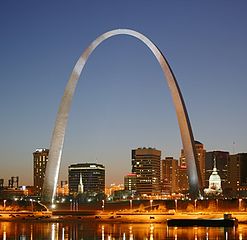 St. Louis aldermen advanced Board Bill 53 out of committee on Tuesday, September 20.
St. Louis aldermen advanced Board Bill 53 out of committee on Tuesday, September 20.
The bill would limit contributions to municipal candidates to $10,000 per city election cycle. Such a limit is nearly four times the proposed state candidate contribution limit currently slated for the November ballot.
A final vote on the municipal measure is expected as early as October. The board bill, if passed, would take effect April 6, 2017.
Photo of the Gateway Arch in St. Louis by Daniel Schwen in Wikimedia Commons.
September 21, 2016 •
Wednesday Government Relations News
Lobbying “Boehner Joins Influential K Street Firm” by Kate Ackley for Roll Call Massachusetts: “Business Lobby Holds New Sway on Beacon Hill” by Frank Phillips for Boston Globe Campaign Finance “Court Rules against FEC in Ad Case” by Jonathan Swan […]
 Lobbying
Lobbying
“Boehner Joins Influential K Street Firm” by Kate Ackley for Roll Call
Massachusetts: “Business Lobby Holds New Sway on Beacon Hill” by Frank Phillips for Boston Globe
Campaign Finance
“Court Rules against FEC in Ad Case” by Jonathan Swan for The Hill
District of Columbia: “No Jail Time for Key Figure in ‘Shadow Campaign’ for Former D.C. Mayor” by Ann Marimow for Washington Post
Missouri: “Campaign Contributions Limit Amendment to Appear on Missouri Ballot” by Jason Hancock for Kansas City Star
Tennessee: “Speaker Harwell: Need to change campaign investment loophole” by Dave Boucher and Joel Ebert for The Tennessean
Wisconsin: “An Inside Look at How Politicians Beg for Big Checks” by Matea Gold for Washington Post
Ethics
“Trump Used $258,000 from His Charity to Settle Legal Problems” by David Fahrenthold for Washington Post
West Virginia: “City Councilman’s Meeting with Construction Company Raises Ethics Questions” by Abigail Darlington for Charleston Post and Courier
Elections
“Gaming the Six-Week Election Day” by Sasha Issenberg and Steven Yaccino for Bloomberg.com
September 20, 2016 •
Constitutional Amendment to Limit Campaign Contributions to Appear on Missouri Ballot
With the Missouri Supreme Court denying an appeal of two lower court rulings, a constitutional amendment reinstating campaign contribution limits will appear on the November ballot. State contribution limits, originally approved by voters in 1994, were repealed by the General […]
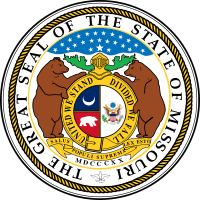 With the Missouri Supreme Court denying an appeal of two lower court rulings, a constitutional amendment reinstating campaign contribution limits will appear on the November ballot. State contribution limits, originally approved by voters in 1994, were repealed by the General Assembly in 2008.
With the Missouri Supreme Court denying an appeal of two lower court rulings, a constitutional amendment reinstating campaign contribution limits will appear on the November ballot. State contribution limits, originally approved by voters in 1994, were repealed by the General Assembly in 2008.
If passed, the 2016 ballot measure would ban direct corporate and labor union contributions and limit individual and committee contributions to statewide candidates to $2,600 per election. Contributions to political parties would be capped at $25,000 per election.
September 2, 2016 •
Most Trusted Online Publications on Government Relations Compliance
We had an amazing experience at the 2016 NCSL Legislative Summit. Our team offered immediate, up-to-date knowledge to clients throughout the week. You can benefit from the same expertise. We are always available to answer questions. Contact us today at […]
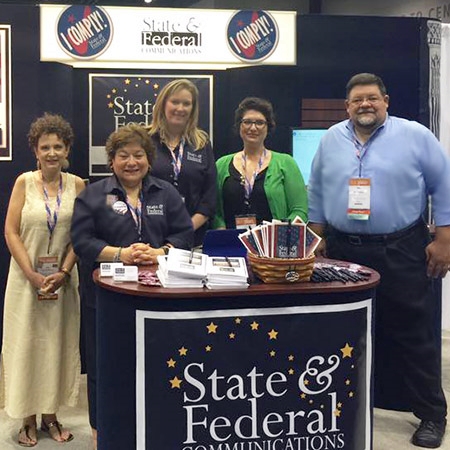
We had an amazing experience at the 2016 NCSL Legislative Summit. Our team offered immediate, up-to-date knowledge to clients throughout the week.
You can benefit from the same expertise. We are always available to answer questions. Contact us today at info@stateandfed.com.
August 31, 2016 •
Deadline Looms for Final Votes in the California Legislature
The California Legislature has been very active in the days leading up to the August 31 deadline for each house to pass bills. On August 30, Assembly Bill 700, a measure that would impose new disclosure requirements for political advertisements, […]
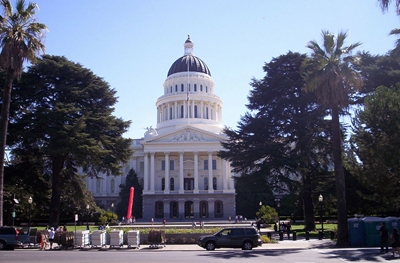 The California Legislature has been very active in the days leading up to the August 31 deadline for each house to pass bills. On August 30, Assembly Bill 700, a measure that would impose new disclosure requirements for political advertisements, failed by a single vote in the Senate.
The California Legislature has been very active in the days leading up to the August 31 deadline for each house to pass bills. On August 30, Assembly Bill 700, a measure that would impose new disclosure requirements for political advertisements, failed by a single vote in the Senate.
Senate Bill 1349 had better luck gaining passage yesterday and is headed for Gov. Jerry Brown’s desk. SB 1349 will require changes to Cal-Access, California’s outdated online campaign contribution and lobbying database.
Photo of the California State Capitol by Griffin5 on Wikimedia Commons.
August 25, 2016 •
D.C. Procurement Bill Moves Closer to Becoming Law
On August 18, District of Columbia Mayor Muriel Bowser returned an unsigned bill to reform the District’s procurement processes signaling that it can become effective without her signature. On August 24, the legislation was sent to Congress for the 30-day […]
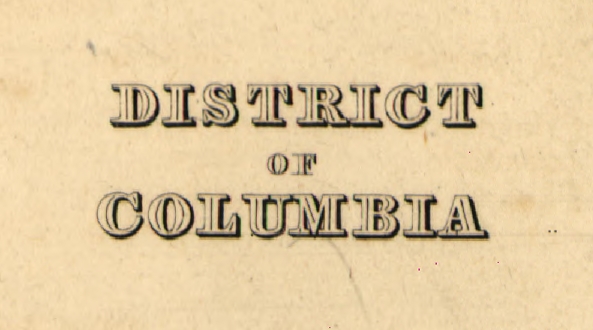 On August 18, District of Columbia Mayor Muriel Bowser returned an unsigned bill to reform the District’s procurement processes signaling that it can become effective without her signature. On August 24, the legislation was sent to Congress for the 30-day congressional review period needed for enactment. The bill will make procedural changes and establish the Office of the Ombudsman for Contracting and Procurement.
On August 18, District of Columbia Mayor Muriel Bowser returned an unsigned bill to reform the District’s procurement processes signaling that it can become effective without her signature. On August 24, the legislation was sent to Congress for the 30-day congressional review period needed for enactment. The bill will make procedural changes and establish the Office of the Ombudsman for Contracting and Procurement.
As introduced, the bill had a pay-to-play provision that banned campaign contributors from bidding on contracts over $100,000 for a year after making a donation to a District candidate. The pay-to-play provision was defeated in a council vote and is not part of the final bill.
On July 20, a federal court ruled the city of Austin’s campaign contribution blackout period unconstitutional. The blackout period allowed officeholders, candidates, and their respective committees to only accept campaign contributions during the last 180 days before an election or […]
 On July 20, a federal court ruled the city of Austin’s campaign contribution blackout period unconstitutional. The blackout period allowed officeholders, candidates, and their respective committees to only accept campaign contributions during the last 180 days before an election or recall election. In Zimmerman v. City of Austin, Texas, the United States District Court for the Western District of Texas, Austin Division, concluded the law was unconstitutional under the First Amendment of the U.S. Constitution.
On July 20, a federal court ruled the city of Austin’s campaign contribution blackout period unconstitutional. The blackout period allowed officeholders, candidates, and their respective committees to only accept campaign contributions during the last 180 days before an election or recall election. In Zimmerman v. City of Austin, Texas, the United States District Court for the Western District of Texas, Austin Division, concluded the law was unconstitutional under the First Amendment of the U.S. Constitution.
In addition, the court found an Austin City Charter provision designating a 90-day requirement for campaign account terminations to be unconstitutional.
District Court Judge Lee Yeakel did uphold the city’s contribution limits for mayoral and city council candidates, finding the limit a constitutional regulation of protected First Amendment activity. The ruling also found City Councilman Don Zimmerman, who originally brought the lawsuit last summer, did not have standing to challenge the aggregate limits of the total contributions a candidate can accept from sources other than natural persons eligible to vote in a postal zip code completely or partially within the Austin city limits.
Photo of Austin, Texas by Eric A. Ellison on Wikimedia Commons.
July 7, 2016 •
Jersey City, NJ to Consider Revising Pay-to-Play Law
Jersey City Councilman Michael Yun has proposed changes to the city’s pay-to-play laws. The changes would broaden the laws to include the city’s autonomous agencies as well as restrict some vendors from contributing to city elected officials seeking higher office. […]
 Jersey City Councilman Michael Yun has proposed changes to the city’s pay-to-play laws.
Jersey City Councilman Michael Yun has proposed changes to the city’s pay-to-play laws.
The changes would broaden the laws to include the city’s autonomous agencies as well as restrict some vendors from contributing to city elected officials seeking higher office. The proposal would also extend the ban on no-bid city contracts, from one year to four years, for those who contribute more than $300 to a candidate.
Yun, a longtime critic of Mayor Steve Fulop, claims the changes are meant to close loopholes in the current law and not to target Fulop. In the past, Fulop’s donors have received large contracts with the city Municipal Utilities Authority, an autonomous agency not bound by current pay-to-play rules. Fulop is also rumored to be considering a 2017 gubernatorial run.
Yun submitted his proposal to corporation counsel for review and hopes to receive initial approval from council at its July 13 meeting.
Photo of Jersey City by David Jones on Wikimedia Commons.
June 1, 2016 •
Wednesday Government Relations News
Lobbying Florida: “Broward Health Will Start Lobbyist Registration in June” by Dan Christensen and Karla Bowsher for FloridaBulldog.org Illinois: “Daily Fantasy Sports Betting Bill Shelved amid Lobbying Accusation” by Ivan Moreno (Associated Press) for State Journal-Register Oregon: “Lobbying, Campaign Contributions […]
 Lobbying
Lobbying
Florida: “Broward Health Will Start Lobbyist Registration in June” by Dan Christensen and Karla Bowsher for FloridaBulldog.org
Illinois: “Daily Fantasy Sports Betting Bill Shelved amid Lobbying Accusation” by Ivan Moreno (Associated Press) for State Journal-Register
Oregon: “Lobbying, Campaign Contributions Give Special Interests Clout” by Hillary Borrud for Hillsboro Tribune
Pennsylvania: “Investigation Puts Scrutiny on Lobbyists, Political Ties” by Brad Bumsted and Mike Wereschagin for Pittsburgh Tribune-Review
Rhode Island: “Rhode Island Senate Passes Lobby Reform” by Matt O’Brien (Associated Press) for WJAR
Campaign Finance
Minnesota: “Campaign Regulatory Board Stymied by Legislature” by Brian Bakst for Minnesota Public Radio
Montana: “Group of Republicans Calls for Special Session on Campaign Finance” by Holly Michels for Helena Independent Record
Ethics
Colorado: “Councilman Says He Will Start Drafting Changes to Denver Code of Ethics” by Jon Murray for Denver Post
Kentucky: “Governor Gets 237 Derby Tickets. Who Uses Them?” by Tom Loftus for Louisville Courier-Journal
New York: “SUNY Polytechnic Office Scoured for Evidence of Bid Rigging” by Jesse McKinley for New York Times
Elections
“Clinton’s Challenge: Become a change agent in a year shaped by voter” by Philip Rucker for Washington Post
On May 25, U.S. District Judge Charles Lovell partially stayed his order from May 17 striking Montana’s contributions limits. On May 17, Lovell ruled the state’s current statutory campaign finance contribution limits were unconstitutionally low. The state determined the ruling […]
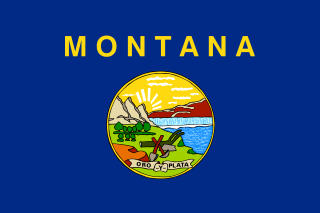 On May 25, U.S. District Judge Charles Lovell partially stayed his order from May 17 striking Montana’s contributions limits. On May 17, Lovell ruled the state’s current statutory campaign finance contribution limits were unconstitutionally low. The state determined the ruling reinstated the contribution limits in place before the statute was enacted.
On May 25, U.S. District Judge Charles Lovell partially stayed his order from May 17 striking Montana’s contributions limits. On May 17, Lovell ruled the state’s current statutory campaign finance contribution limits were unconstitutionally low. The state determined the ruling reinstated the contribution limits in place before the statute was enacted.
However, the contribution limits allowed from political parties in the previously enacted law were lower than the amounts ruled unconstitutionally low. Because of this, the court issued its partial stay as to the amount political parties may contribute. All other contribution limits will remain from the reinstated law, adjusted for inflation. The partial stay will remain in effect pending the state’s appeal of the entire case to the 9th U.S. Circuit Court of Appeals.
State and Federal Communications, Inc. provides research and consulting services for government relations professionals on lobbying laws, procurement lobbying laws, political contribution laws in the United States and Canada. Learn more by visiting stateandfed.com.

